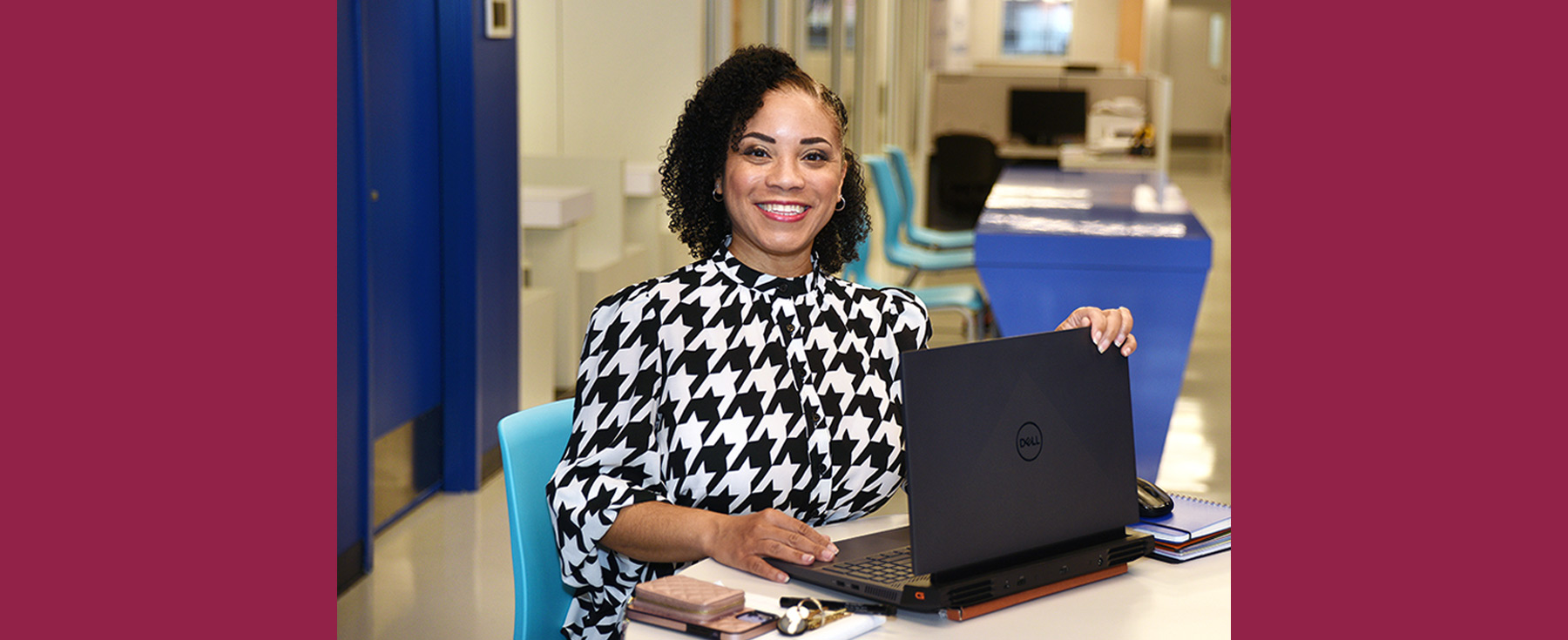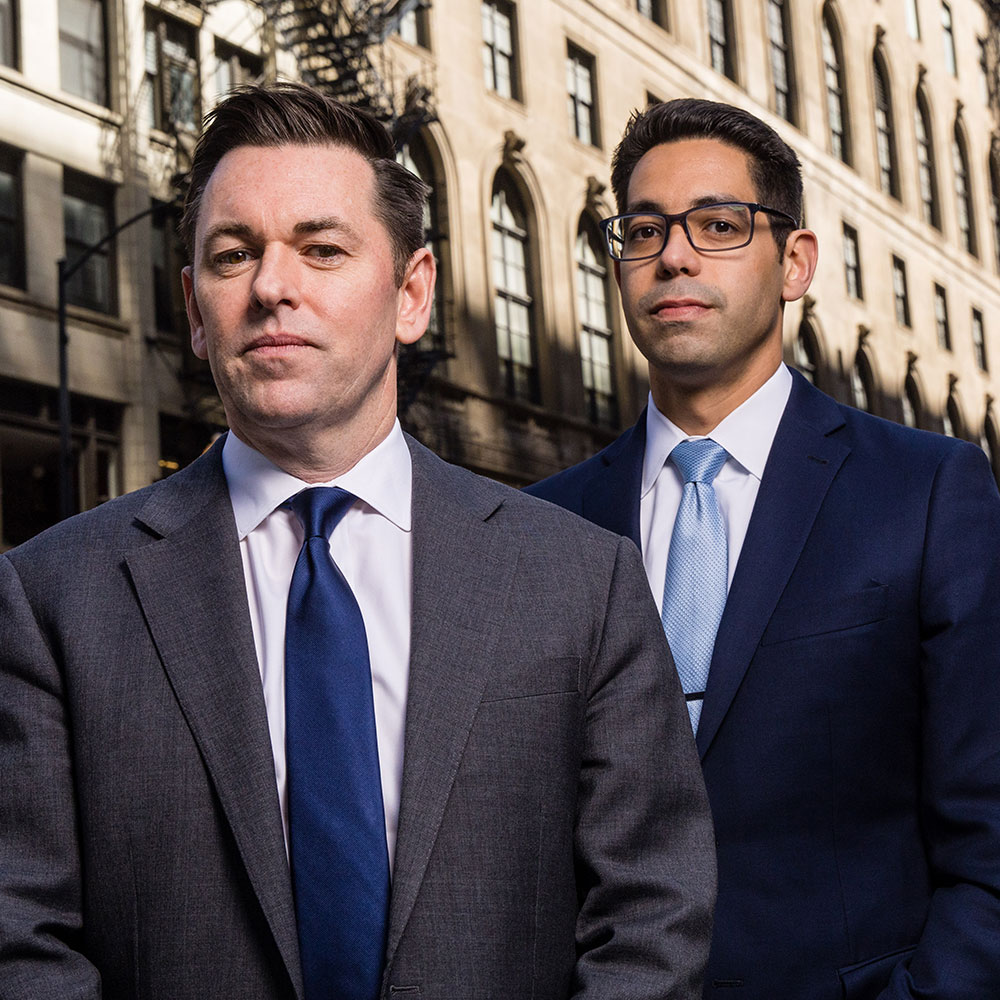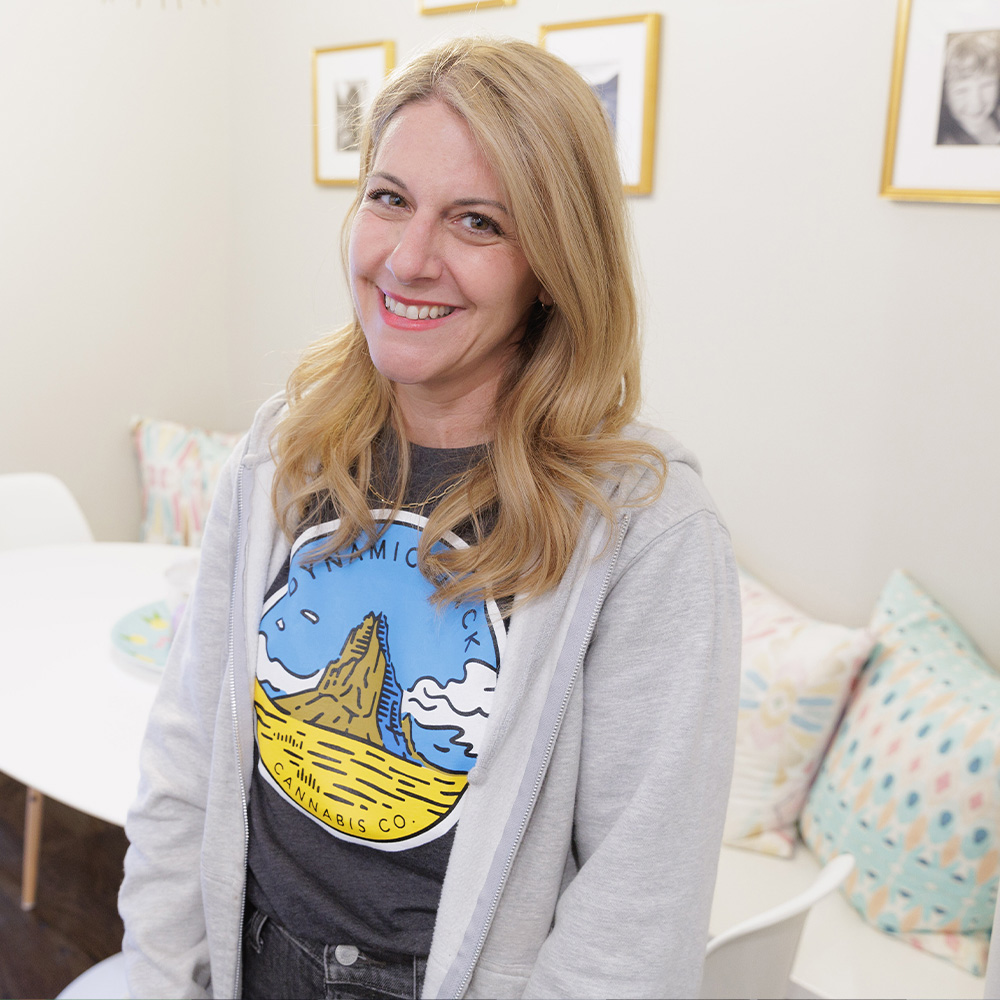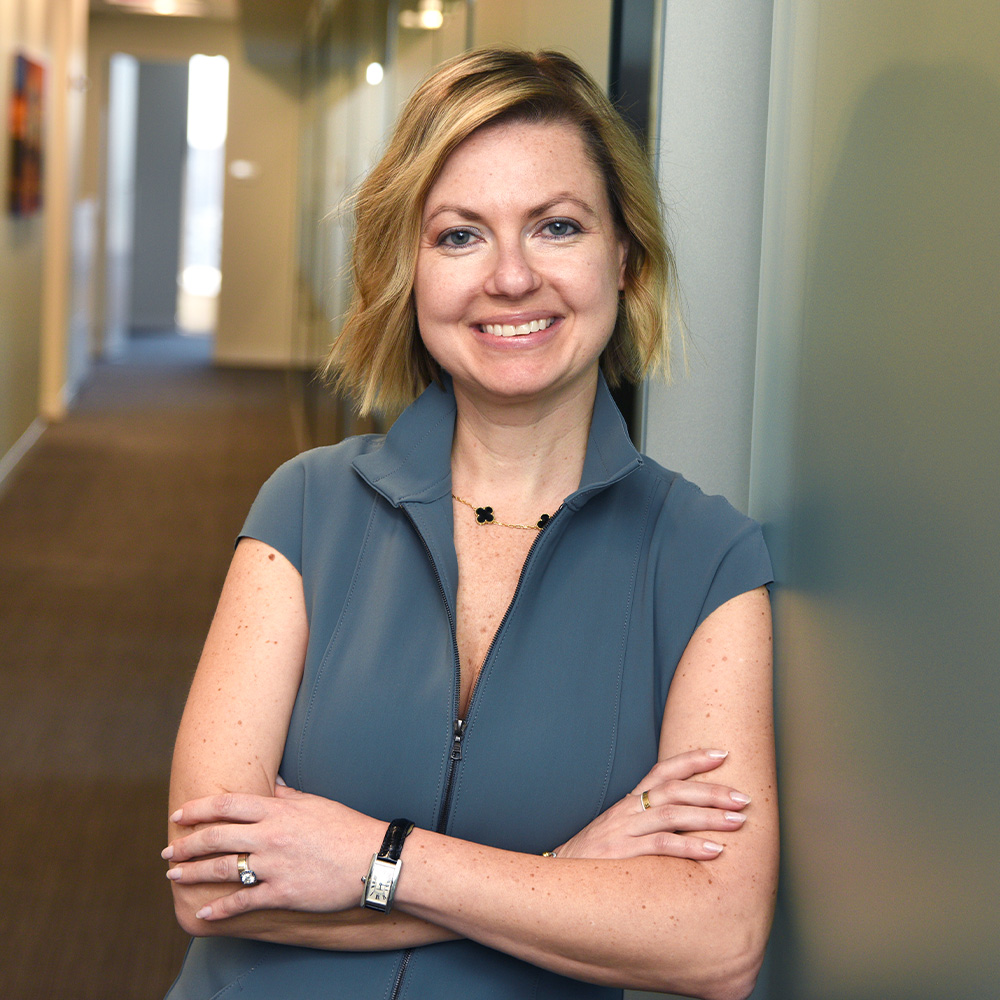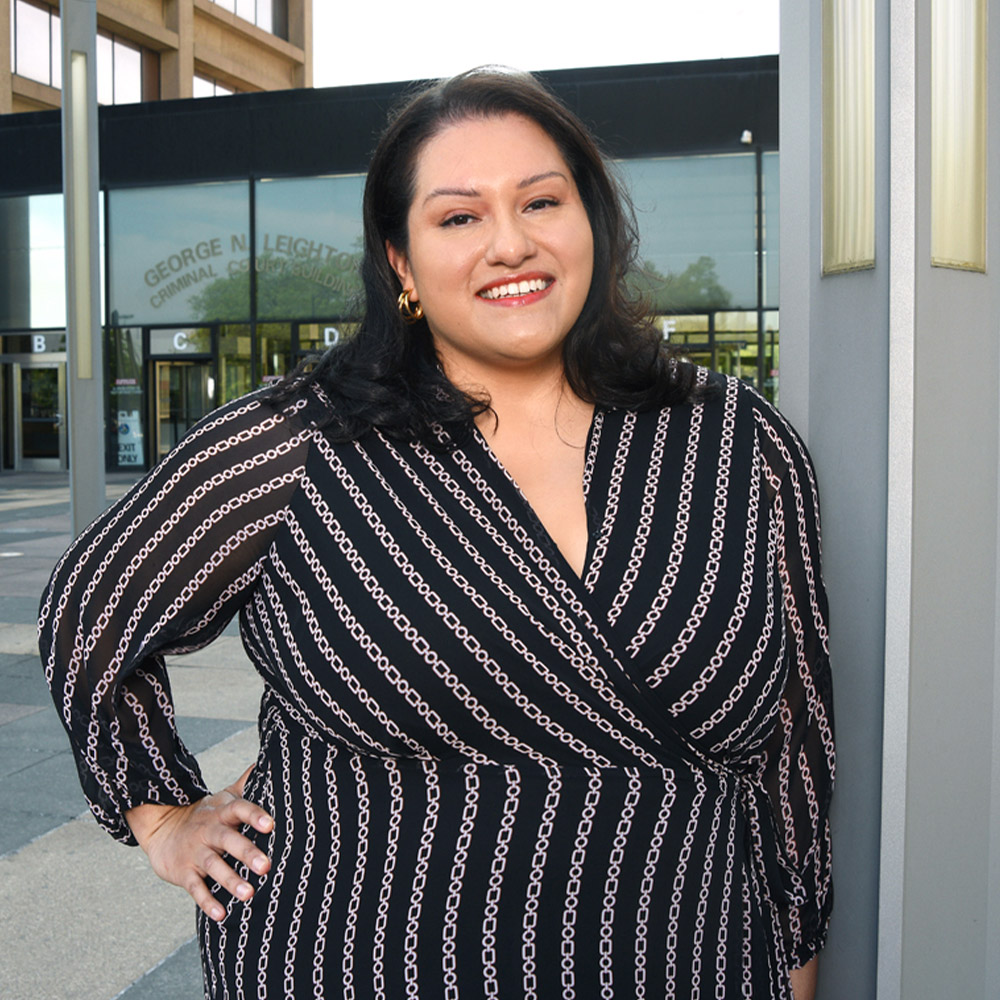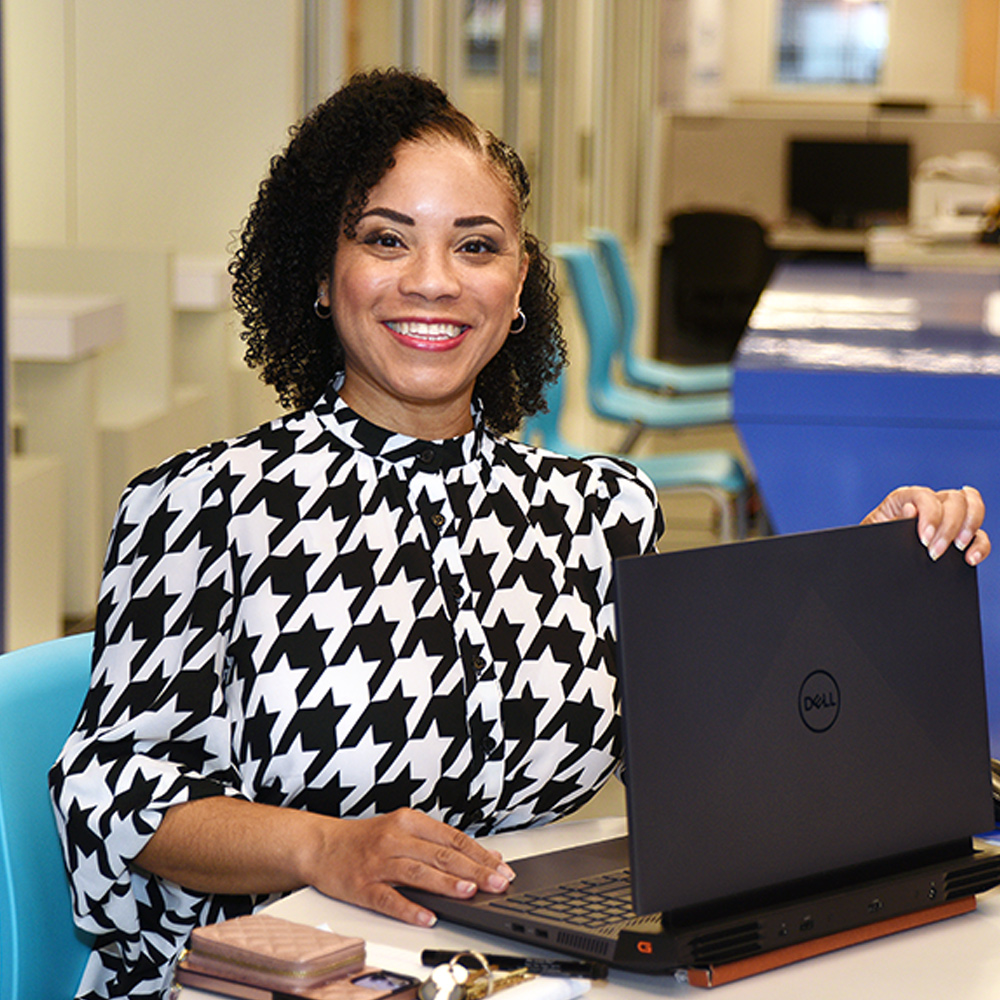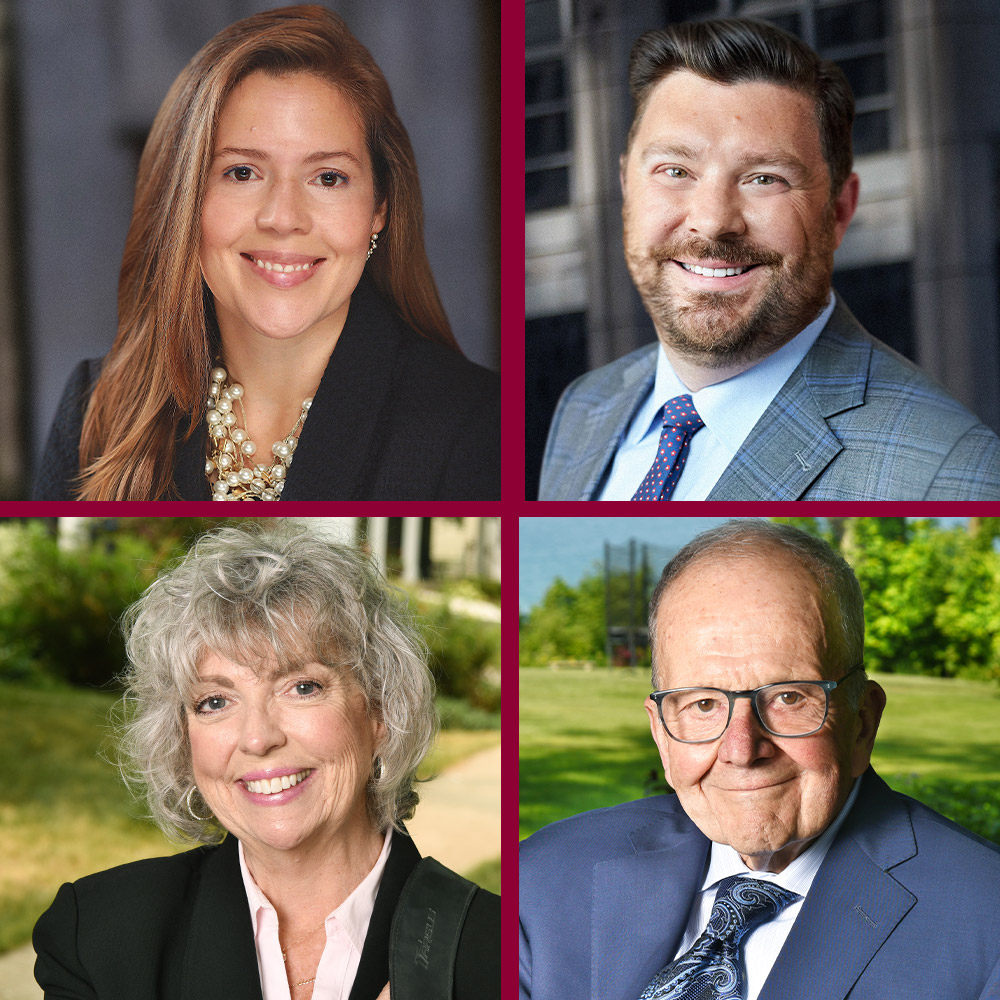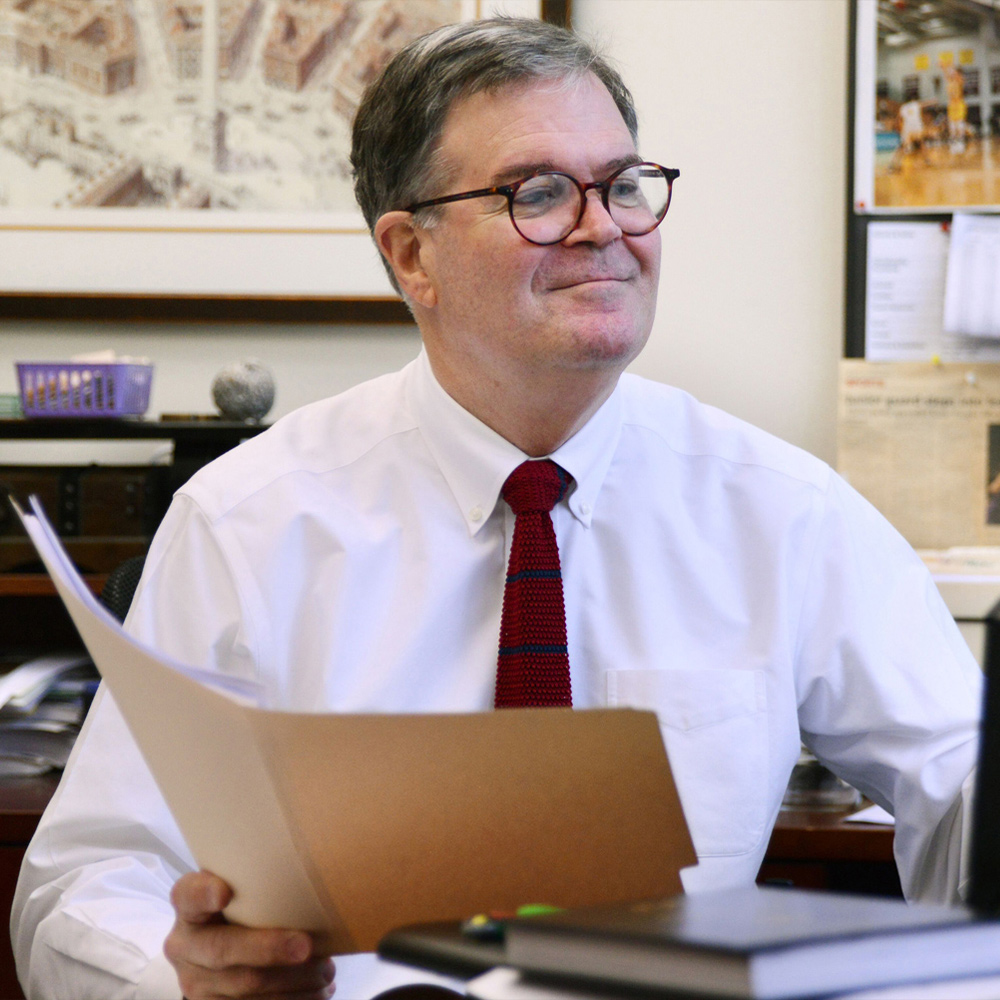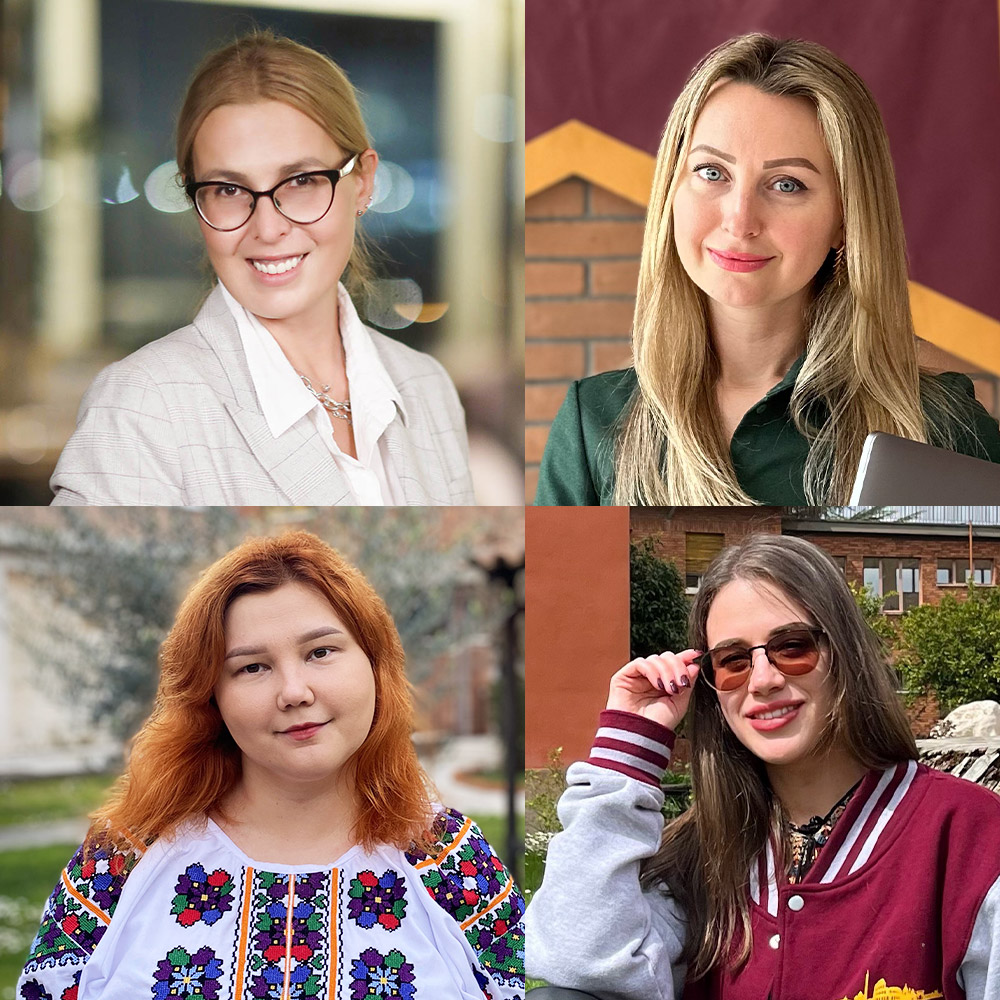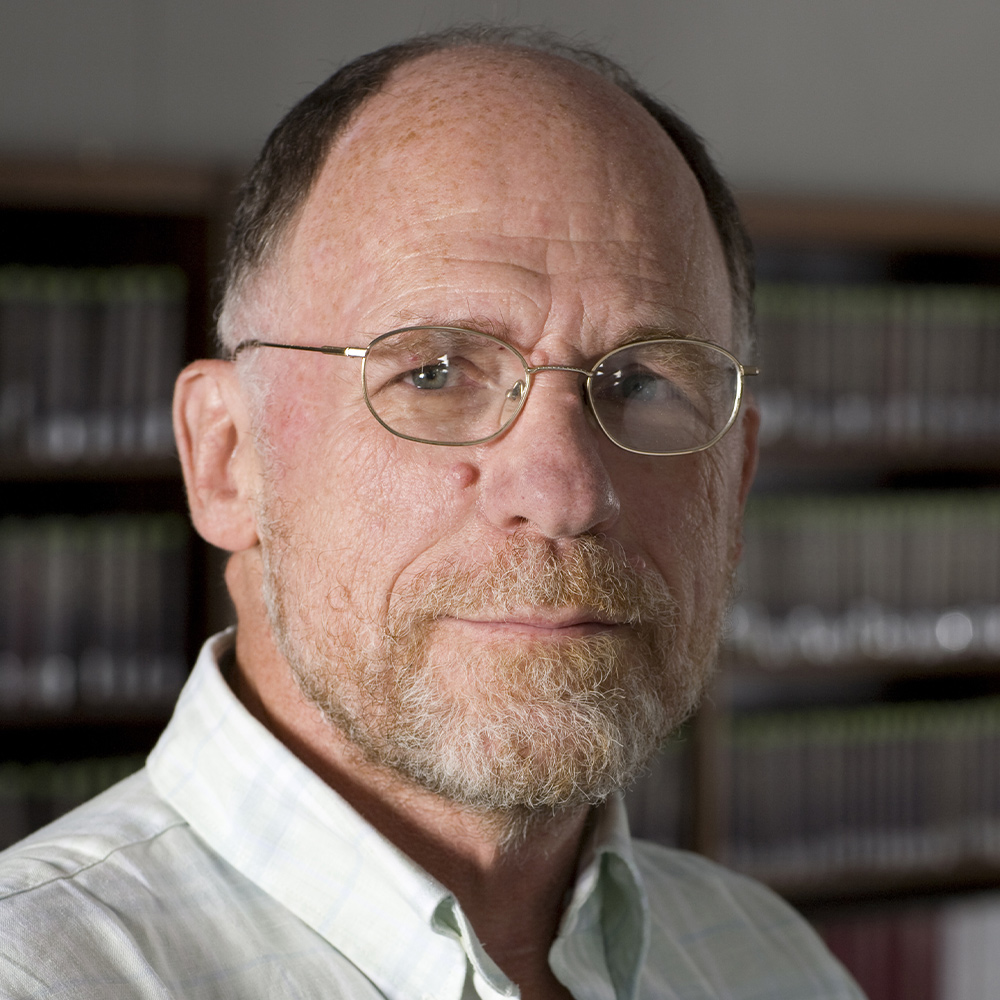ALUMNI PROFILE Aisha Cornelius Edwards (JD ’05)
Abolition advocate
Aisha Cornelius Edwards (JD ’05) teaches the popular course Abolition and Movement Lawyering
When Aisha Cornelius Edwards (JD ’05) was in undergrad, her little brother was sent to juvenile detention for theft despite having no priors. She wasn’t a lawyer yet, but she wrote a mitigation letter and release plan for him.
“It kind of became my first case,” she says.
The judge granted her brother probation with services rather than keeping him detained, and Edwards began a career-launching fascination with the shortcomings of the criminal justice system.
Today, Edwards is executive director of Cabrini Green Legal Aid, which provides legal and social work services, as well as advocates for policy change, for low-income people negatively affected by the criminal justice system. She also teaches the popular Loyola University Chicago School of Law course Abolition and Movement Lawyering, launched in 2022. The abolition movement imagines a world where society dismantles systems and practices stemming from the persistent impacts of settler colonialism, enslavement, and other oppressive practices that draw their power from the law. From the courtroom to the classroom, Edwards challenges criminal justice’s systemic issues. Here, she discusses her career, her curriculum, and how she helps her students imagine a more equitable future.
You’ve centered your career on public interest—why is this important to you?
I spent some early childhood years in a Chicago suburb, exposed to a racially and economically mixed community where there was a lot of support and opportunity. My mother became single and had to move us back to a community on Chicago’s South Side, where I experienced a dramatic change in quality of education, healthcare, opportunities, and general life expectations. We were exposed to much higher rates of surveillance, control, and incarceration. More than half of my high school class did not make it to graduation. And I was told by one of my teachers that I should not pursue my dream to become a lawyer and address these inequities because “Black women cannot succeed in law.” But I’d had a glimpse into another reality, and it gave me fuel to dream of a better future for myself and others.
What do students learn in the Abolition and Movement Lawyering course?
My course co-creator, Arti Walker-Peddakotla, and I wanted to create a space to go deeper than simply learning what the law is. We talk about the concept of abolition in modern context, going beyond abolition of policing or the prison industrial complex, and discuss systemic oppression, inequities, and how they show up in multiple systems, usually protected by the law. We talk about broad concepts in the first half of the class, and then we imagine a future if abolition were to happen for various systems.
We also spend time talking about what Movement Lawyering is, and how to stand in solidarity with the community you want to help. We want to work to disrupt the power dynamic between attorneys and communities, so it’s more of an equitable partnership. The last half of the class is student led and student focused. Student groups pick the topic and facilitate the class. We talk about the immigration system, the school-to-prison pipeline, the military-industrial complex. We talk about housing law and housing justice. We’ve also gone deeper in exploring how colonialism, capitalism, and racism interplay into the systems that we have now.
Overall, we grapple with sensitive and challenging issues, and we do not always agree, but there is a sense of collective growth and power to the process.
“We want to work to disrupt the power dynamic between attorneys and communities, so it’s more of an equitable partnership.”
What do you hope students will get out of the class?
A lot of what we’re doing is unlearning. We’re doing it as a collective. It is a community of folks who sense something is not right and want to do better. The main things I hope students get out of this is critical thinking, the ability to think about an issue from multiple sides as well as courage to speak out against injustice. The importance of collective, robust thought about solutions and problem solving. The importance of partnering with impacted communities and letting them lead. Growing an understanding of racism and capitalism and how it affects so many things. It’s something we must be ever vigilant to identify and work to dismantle. Though abolition is not just about dismantling, it is envisioning and building anew. Collectively creating a future based on community responses and where more people have the freedom to thrive. –Megan Kirby (June 2023)
